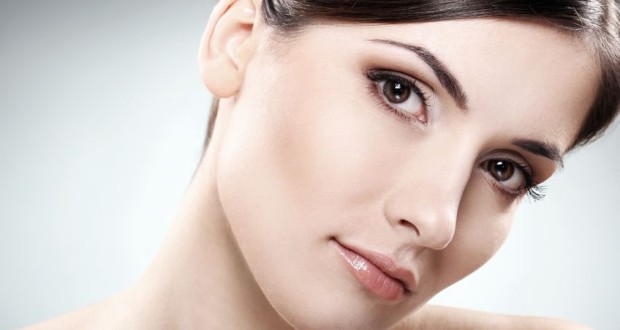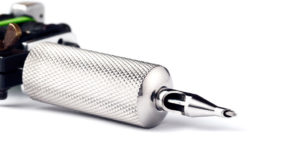Rejuvenating the skin is the most noticeable way to obtain a more youthful appearance. Of course there are many remedies and secrets in skin rejuvenation but staying on the natural route will be extra beneficial in the end. Every single day your face accumulates dead skin cells, dirt and grime from pollutants in the environment. These elements clog and block up the pores in your skin and cause pimples, blackheads, blemishes and even rashes. With these external factors having the physical affect of damaging and potentially scarring your skin, properly managing a clean face is necessary and should be a vital part of each day. Becoming actively aware of how you treat your skin and how the external forces of everyday life treat your skin will only benefit your health and your outer shell of not just the skin on your face, but your entire body. With little techniques and habits that you can integrate throughout your daily routines and eventually adopt as habits will result in healthier and clearer skin.
Maintaining a Well-Hydrated Body
The absolute number one and probably most important task that is a necessity for hundreds of reasons is to keep your body hydrated. The favorable results you receive from just drinking water alone are limitless. A well hydrated body shows in your skin and more importantly balances you internally. By drinking enough water every single day you detoxify your system, protect and moisturize your joints, water helps transport nutrients and oxygen into your cells and helps our organs to absorb nutrients.
The most noticeable physical benefit you will receive by drinking a lot of water will be in your skin. A well-hydrated body will result in healthy looking skin; it can do no harm! Well-hydrated skin will appear to shimmer while dehydrated skin can age you.
Sunlight Protection
It is no secret that the sun’s rays are damaging to your skin. The skin does need some sunlight for vitamin D, however too much exposure to the strong rays can cause wrinkles, sun spots and freckles and skin cancer. No matter what time of year make sure you wear some level of an SPF. It doesn’t have to be warm and sunny to get a sunburn.
Taking Care of Acne at Any Age
Acne, whether you are going through adolescence or have a type of adult acne, can be very serious. By properly taking care of your acne, you can prevent the spread of bacteria and potentially prevent scarring. It is always best to consult with your dermatologist when considering the right approaches to take care of your acne. The earlier you start taking care of your skin the better.
Easy Steps To Clean Skin!
Cleansing
The purpose of cleansing your skin is to remove the dirt, excess skin oils, bacteria and cosmetics from the outer most surface. Cleaning your face is the first step in basic skin care treatment. The best way to begin cleansing your face is to wash your hands so you do not spread any bacteria onto your face, especially near your eyes and mouth. Begin massaging the cleanser with your fingertips near your hairline and working your way down around your eyes, in towards your nose around your mouth and on to your chin and neck with gentle motions. To deep cleanse your face, leave the cleanser on for about a minute. After about a minute, with a clean towel wipe away any left over residue from your makeup or excess dirt. It is best to cleanse your face twice a day, once in the morning and right before you go to sleep at night. It is best to use warm water rather than hot when washing your face.
Exfoliating
When you exfoliate your skin you are gently removing away dead skin cells. Exfoliating your skin is important because it is a way in achieving a healthy glowing hue and a smoother surface and appearance. Your exfoliant should contain some type of grain so that any dead skin build up can be gently scrubbed away. Use the same motions with your fingertips as you did with cleansing. By stripping away old skin you jump start the production of new collagen which gives your skin a plump and fresh look; collagen production is essential especially with the aging process.
Toning
Toning your skin helps keep your skin healthy and your pores clean. You should apply a toner after cleansing and exfoliating your face. It is best to tone right after the first two steps because this will help to revitalize and hydrate your pores. The toner will also rid of any impurities that your cleanser or exfoliant did not get rid of. Using a toner right before you moisturize helps calm your facial pores so your skin will be more receptive to moisturizing. It is just as important for men to tone their skin because their pores tend to be larger and deeper.
Moisturizing
Moisturizing your skin will help obtain skin hydration and suppleness to achieve that younger look. Moisturizing your skin with an SPF will also help protect your skin from the harsh sun while retaining hydration. Over time, adding moisturizer to your skin will slow down the aging process and prevent fine lines and wrinkle appearance. Fun and Healthy Face Mask Recipes!
Simple and Sweet
Sugar is a natural alternative to an exfoliant. All you need it 2 tablespoons of white sugar and 3 tablespoons of warm water. Mix together so sugar melts. Otherwise, the sugar might tear at your skin. Once sugar is melted just apply to your face and rinse away with a warm wash cloth.
Going Green
Take a half a cup of cooked oatmeal, 1 mashed avocado and a 1/3 cup of honey. Mix all ingredients together and incorporate together well. Apply to your face. Leave on for about 15 minutes and remove with a cool wash cloth.
For a Fruitful Feel
Take 3 or 4 large grapes (green or red) cut them in half, and rub the insides on your face and neck. Rinse with cool water.
Just Honey
Wash your face with a warm to hot wash cloth, at least until your pores have opened from the steam. Smear honey onto you T-zone (across your forehead, onto your nose, all over your cheeks and on your chin). Leave the honey on for 25-30 minutes, rinse with a warm cloth and then cleanse with cool water to close pores back up. To mix this mask up a little you can add in some oatmeal.
Skin Elasticity
Skin elasticity is the ability to stretch and then go back to normal once you stop stretching the skin. Skin losing its elasticity is just another sign of aging. The condition of reduced skin elasticity is called elastosis and it is most noticeable in areas of your body that have been exposed to sunlight. Elastosis can also appear in people’s bodies when they have lost a large amount of weight in a short period of time. This leaves excess skin that the body was not able to adaptively respond to. The question is, can we slow down the aging process and prevent elastosis? There are some ways to nourish your skin that will boost elasticity and possibly slow down the reduction of elasticity in your skin.
Vitamin A
When your skin is dry and flaky it is often a sign of vitamin A deficiency. By including more vitamin A into your diet you can help support elasticity and skin moisture. Some foods that are high in vitamin A are spinach, mangoes, carrots and sweet potatoes.
Vitamin B
Vitamin B is vital in the production of hair, skin and nails. Vitamin B complex helps maintain skin tone and elasticity. Biotin is essential in the production of skin, hair and nails.
Vitamin C
Vitamin C helps can protect the skin against the sun’s ultraviolet rays and intake of vitamin C helps increase collagen production which, reinstated, may slow down the signs of aging. Using a topical cream or gel of vitamin C is extremely beneficial with increasing collagen production. The intake of Vitamin C will help contribute to the firmness of the skin. Fruits and vegetables that contain the fibrous protein of Vitamin C are citrus fruits, orange juice, bell peppers, broccoli and dark leafy greens.
Vitamin E
Like vitamin C, vitamin E is an antioxidant meaning it helps to rid the body of free radicals. It is important to consume antioxidants because most chronic diseases are associated with free-radical damage. Vitamin E is found in almonds, olive oil, nuts and pumpkin seeds.
 Natural Knowledge 24/7 Educate yourself with nutrition, health and fitness knowledge.
Natural Knowledge 24/7 Educate yourself with nutrition, health and fitness knowledge.






